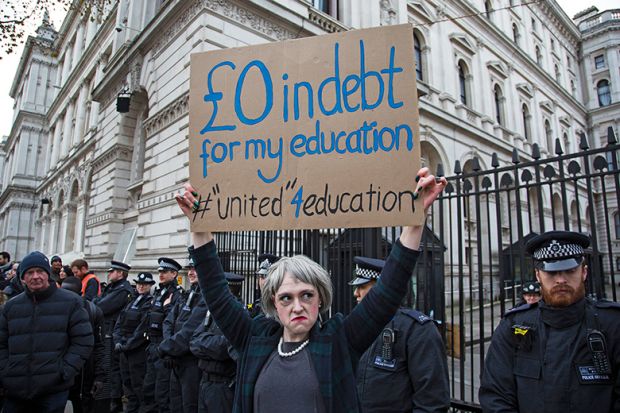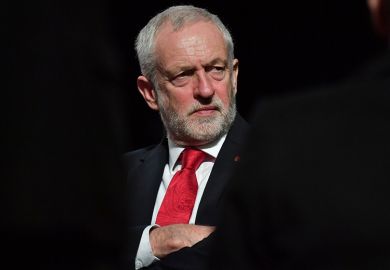Large numbers of young people from poorer backgrounds in England are being deterred from applying to university because of fear of incurring student loan debts, a major study has revealed.
As voters prepare to deliver their verdict on Labour’s plans to scrap tuition fees, researchers at the UCL Institute of Education have argued that the fact that higher education participation has continued to widen under the £9,000 fee regime is no cause for complacency.
They use the results of two surveys – conducted in 2002, when fees were £1,000 a year, and 2015, under the higher fee regime – to contend that efforts to widen access would likely be more successful if fees were abolished or means-tested.
Claire Callender and Geoff Mason found that, overall, respondents have become much more receptive over time to the idea of using loans to pay for a degree: 74 per cent of 17- to 21-year-olds agreed with the statement that “borrowing money to pay for a university education is a good investment” in 2015, compared with 52 per cent in 2002.
However, students from the richest backgrounds are much less likely to be averse to incurring debt compared with young people from the poorest backgrounds; and, crucially, the gap between the two groups’ views widened significantly between 2002 and 2015.
Professor Callender and Mr Mason found that a lower percentage of working-class students said that they intended to apply to university (85 per cent) compared with those from an upper-class background of similar ability (89 per cent) because of these fears, according to a paper in The Annals of the American Academy of Political and Social Science.
And, while in 2002 middle-income students had been significantly less debt averse than the poorest students, in 2015 their responses were similar, suggesting that this group may have been “squeezed” by higher fees and reduced grant eligibility.
The findings, based on the responses of 1,028 students in 2002 and 1,427 in 2015, come as almost all English higher education institutions prepare to start charging up to £9,250 under the first year of the teaching excellence framework. Further inflation-linked rises are planned on an annual basis.
Ucas data show that the higher education entry rate for young people from the most disadvantaged backgrounds in England increased by 29 per cent between 2011 and 2016, but the most privileged teenagers remain nearly two and a half times more likely to enrol.
Professor Callender, who holds chairs in higher education policy at the UCL IoE and Birkbeck, University of London, said that policymakers were “complacent” about the impact of high fees and debt on widening participation.
“What this study is suggesting is that debt aversion deters young people, especially the poorest, from applying to university; so both high fees and levels of student loan debt matter and cannot be ignored,” she said.
“It is likely that participation would be even higher, particularly among lower-income groups, if students did not have to accumulate so much debt.”
Register to continue
Why register?
- Registration is free and only takes a moment
- Once registered, you can read 3 articles a month
- Sign up for our newsletter
Subscribe
Or subscribe for unlimited access to:
- Unlimited access to news, views, insights & reviews
- Digital editions
- Digital access to THE’s university and college rankings analysis
Already registered or a current subscriber? Login








